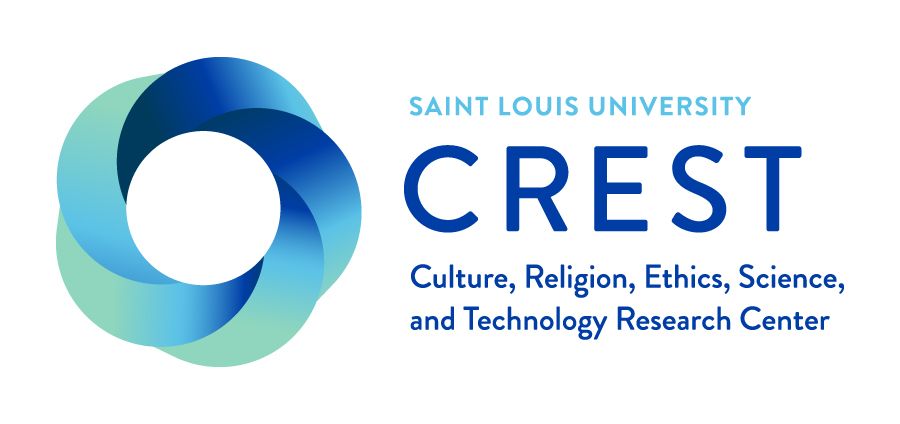Projects
For the 2023-2025 academic years, the Saint Louis University CREST research center will launch a spatial humanities and geospatial information science (GIS) project.
2023-2025 CREST Project
The Spatial Turn: Mapping the Terrain of Geospatial Science and Humanities
GIS is a developing and highly interdisciplinary science that draws on and advances technological innovation. Like many sciences and technologies, GIS can be put to better and worse use. While it can assist scholars of the humanities and the human sciences in their own work, GI scientists also benefit from conversations about the social, historical, political, and philosophical frames in which GIS operates.
The Spatial Turn at SLU gathers CREST’s Community of Scholars (CS) from the fields of theology, religion, philosophy, history, business and bioethics to participate in a biweekly seminar in which we will read relevant literature, engage GI scientists, and share work in progress. GI scientist and visiting scholar Matthew W. Wilson will facilitate some of our initial workshops and conversations.
Cohort 2024-2025

Dannielle Joy Davis, Ph.D., professor, higher education administration, Saint Louis University
Professor of Higher Education Dannielle Davis' work explores how geospatial information science (GIS) can improve qualitative methods in innovative ways, as well as ethical considerations that community-engaged researchers should address when collaborating with traditionally marginalized populations. It particularly explores the following questions: In what ways can geospatial technology promote participant engagement in research? And what ethical considerations might emerge when applying geospatial information science (GIS) to understand marginalized communities? Addressing these questions promises to increase qualitative scholars' capacity to authentically engage and ethically work with community members locally and globally.
Davis' interdisciplinary research examines community engagement in STEM education, research ethics, home education, and the experiences of marginalized groups. She is a twice-elected chair of the American Educational Research Association's (AERA's) Spirituality and Education Special Interest Group (SIG) and has served on the Leadership Team for AERA's Qualitative Research SIG. A "Society for Science and the Public" Advocate Awardee, David is also an associate investigator with SLU's Water Access, Technology, Environment, and Resources (WATER) Institute.
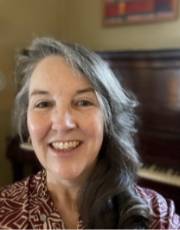
Monica Eppinger, Ph.D., J.D., associate professor of law, Saint Louis University
Monica Eppinger is a legal scholar and anthropologist specializing in Ukraine, her focus since 1995 (initially as a member of the U.S. diplomatic corps). Her CREST project brings together the legal subdisciplines of property and national security, both areas in which territoriality is fundamental, and anthropological exploration of spatiality. Through a conceptualization of "territoriality," the project studies the experience of post-Soviet Ukrainians as they erased preexisting lines — national borders and property boundaries — through the legal dissolution of the U.S.S.R. and its socialist property regime; took up basic reorganization of space and society; and now face a war that has again foregrounded territory and brought the stakes of spatiality into sharp relief.
Eppinger holds a B.A. from Yale College, an M.A. in diplomacy from the Fletcher School, a Ph.D. in anthropology from the University of California, Berkeley, and a J.D. from Yale Law School. In 2023-2024, she was a visiting scholar at the Center for the Study of Law and Society at U.C. Berkeley. She is tenured as an associate professor at Saint Louis University School of Law.

Cathleen Fleck, Ph.D., associate professor, art history, Saint Louis University
In 1904, the St. Louis Louisiana Purchase Exposition — or World's Fair — celebrated American imperial westward expansion alongside displays about art, science and progress in society. Its insertion of a miniature Jerusalem section might seem at first incongruous, given the city's antiquity. The exhibit incorporated hundreds of "native" inhabitants and copies of 10 acres of streets and buildings, including a Dome of the Rock. The original dome was built ca. 692 by a Muslim sultan on the site of the former Jewish Temple (destroyed 70 C.E. by Romans) as a sign of the conquest over Byzantine Christians. My CREST project aims to map digitally the exhibit's Jerusalem onto the actual city's sites and demonstrate the exposition's formation of a Eurocentric, Christian framing of the holy city. This Protestant religio-political, colonial control relates also to the Americanization of burgeoning Zionism, inspired by the fair's display of national entities.
Cathleen Fleck received her Ph.D. in art history from the Johns Hopkins University. She has been a faculty member of the Department of Visual and Performing Arts since 2000, and chair since 2019. Her teaching and research focus on the Middle Ages across the Mediterranean. Her recent book, entitled "Reimagining Jerusalem's Architectural Identities in the Later Middle Ages" (Brill, 2022), examines how Christians and Muslims from the 12th-14th centuries understood the representation of Jerusalem's monuments as instruments of power, persuasion, consolation and spirituality. This new book project takes her knowledge of Jerusalem and connects it to the modern perception and politics of the city.
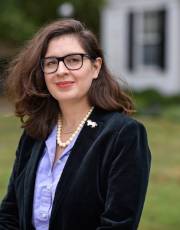
Ani Honarchiansaky, Ph.D., assistant professor, theological studies, Saint Louis University
This interactive database is based on the accounts of travelers who visited the region between the 11th and 14th centuries. The project aims to showcase the rich diversity of religions in the region while providing insights into the complex relationship between religious communities and the broader Islamicate world. By combining narratives and geographical data, this database offers a unique perspective on the multicultural, multireligious everyday life of the medieval Middle East. It serves as a crossover between the disciplines of religion and geography, as well as Silk Road studies, shedding light on the intersections of culture, religion, and geography in this dynamic region.
The primary goal of this project is to deepen our understanding of how religious communities interacted with and belonged to the Islamicate world. Through mapping and storytelling, users can explore the various degrees to which religious communities were integrated into the social, political, and legal fabric of the region, as well as how they distinguished themselves within this complex environment.
Ani Honarchian is an assistant professor of early Christianity with a focus on Eastern Christianity and Armenian sources. Her current book project, On the Threshold, studies the social and historical interactions of Armenian-and Syriac-speaking Christians living in the frontiers and the heartland of Sasanian Iran. Before coming to SLU, she was a postdoctoral fellow at the University of Utah in the Middle East Studies Center and Princeton's Seeger Center for Hellenic Studies and the Center for the Study of Late Antiquity.
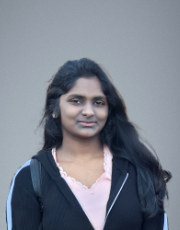
A passion for visualizing data since a young age led me to pursue a career in computer science. Alongside my academic pursuits, I'm actively involved in the Global Grad Scholars Project. Here, I contribute to enhancing the STL Village website to improve user experience and accessibility for older adults. Additionally, my role as a project management intern at Excelerate HackQuest provided me with valuable skills in coordinating and executing projects efficiently. I also participated in {eHacks}, a 36-hour hackathon at the T-Rex Innovation Center in St. Louis. Our team's project, "Shooting Star," won the "Best Use of AI" 2024 award.
After attending the Geo-Resolution Conference and CREST workshops on ethical map creation using QGIS, I'm excited to leverage my skills in interactive digital mapping. My goal is to shed light on the disproportionate climate change impacts facing marginalized urban communities due to historical injustices.
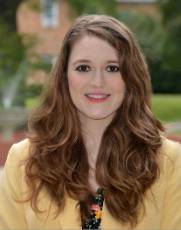
Melissa Ochoa, Ph.D., assistant professor, women's and gender studies
Men and women experience different realities. For most women, being hypervigilant in public spaces has become almost instinctual. For years, I have been developing "surveillance labor," which refers to the active hyperawareness of surroundings to assess the potential threat of sexual violence. My interdisciplinary project seeks to examine the following: 1) Who is activating surveillance labor? 2) When are they activating surveillance labor? 3) Where in St. Louis are they activating surveillance labor? 4) What are the health consequences of activating surveillance labor? GIS is an important aspect of this project as it examines the "when" and "where" of my research questions. Using GIS, I would like to investigate the time and place surveillance labor is highly activated. The research can shed light on the experiences and inequality of marginalized populations within the broader St. Louis community helping us expand their "walkability" to create equitable, structural solutions.
Melissa Ochoa is an assistant professor in the Department of Women's and Gender Studies at Saint Louis University. She received two bachelor's degrees from Purdue University in psychology and public relations and rhetorical advocacy, and a Ph.D. in sociology from Texas A&M University with a women's and gender studies certificate. Her current research examines everyday forms of sexism as part of a continuum of sexual violence and plans on incorporating GIS, biometrics, and other interdisciplinary measures in future research.
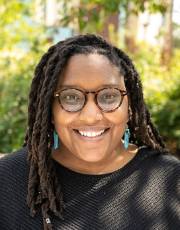
Charnell Peters, Ph.D., assistant professor, communication
The multimillion-dollar genetic ancestry testing (GAT) industry continues to grow in reach, and over 30 million people have taken DNA tests to determine "who they are." Recent research has called for increased transparency from GAT companies and genomic literacy from the public. In response, this research interrogates how GAT companies construct people and places using proprietary data sampling, storage, and analysis. GAT companies continue evolving in their genomic mappings of the world and its people, with many sociopolitical consequences (e.g., claims to citizenship, Indigeneity, ethnicity). The current project also provides a public-facing digital interface that allows viewers to compare the geospatial logics of each company. By mapping the map makers, it empowers the public and stakeholders to make more informed decisions about commercialized genomics.
Charnell Peters is an assistant professor of race and communication at Saint Louis University. Her research has been published in journals such as New Media and Society, Journal of Family Communication, and Text and Performance Quarterly.
Cohort 2023-2024
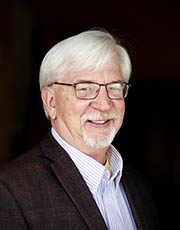
Gregory Beabout, Ph.D.
Professor of Philosophy
Saint Louis University
This project brings together several lines of research from Aristotle’s work on animals, to Pope Francis’ Laudato Si’, and wisdom in animal behavior to garner wisdom for living in today’s world. This project focuses on three particular birds of different species — a swan, an owl, and a crane — each outfitted with a GPS-GSM transmitter. Geospatial mapping permits one to observe these particular birds to deepen our understanding of what it is for them and for us to live and to live well in contemporary environments.
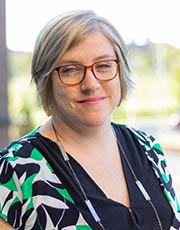
This project is an extension of the Lived Religion in the Digital Age (LRDA) project. Since 2018, LRDA has created models and platforms of sustained critical attention and public engagement to better understand “religion” in the modern world. This project develops a mobile/desktop application where scholars, students and public users can upload, analyze and visualize collected fieldwork data. The result will be an ongoing collection of user entries, all visualized in our scalable and interactive map.
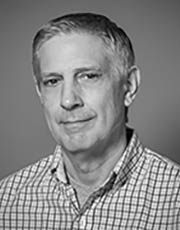
Charles H. Parker, Ph.D.
Professor in the Department of History
Saint Louis University
This project traces the interconnections between space, narrative and praxis in religious encounters to provide new ways of thinking about early modern religion. Utilizing insights from the “spatial turn,” this project explores commonalities in religious entanglements around the early modern world. The research combines in-depth spatial analysis of several Catholic and Protestant missions and their interactions with a reconstruction of spatial politics in several key Asian domains. Such settings allow for contextualization, comparison and contrast to help make sense of common “early modern” tendencies formed in the contests over sacred geography.
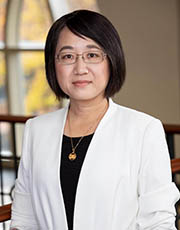
Jintong Tang, Ph.D.
Mary Louise Murray Endowed Professor in Management
Professor of Entrepreneurship
Research Institute Fellow
Saint Louis University
Women's entrepreneurship has been identified as one of the most effective and fruitful approaches to empowering women, and yet women continue to be systematically underrepresented in entrepreneurship. Entrepreneurship theories emphasize the spatial nature of entrepreneurial networks, cultural norms and behaviors. This project uses geospatial data to characterize the spatial-temporal patterns of entrepreneurial businesses founded by women and identify the key determinants encouraging women to enter entrepreneurship. We hope to help women overcome psychological barriers and motivate them to engage in entrepreneurship with greater potential for success.
Past Projects
This interdisciplinary research group gathered to study the concept of death as it is imagined in various discourses, from the heat death of the universe to the death of stars, to death in evolutionary theory, to death and climate change, to death in popular culture and contemporary society, to death in medicine. We explored how our concepts of death shaped how we imagined life in contemporary culture and society. This interdisciplinary group included:
Convenor
Jeffrey P. Bishop, M.D., Ph.D.
Professor of Philosophy
Tenet Endowed Chair in Bioethics
Saint Louis University
Visiting Professor
The Rev. David Brown, SJ, D.Phil
Astronomer, Vatican Observatory
Community of Scholars
Alaina Baker-Nigh, Ph.D.
Associate Professor of Biology
Saint Louis University
Harold Braswell, Ph.D.
Associate Professor of Health Care Ethics
Saint Louis University
Benjamin de Foy, Ph.D.
Professor of Earth and Atmospheric Science
Saint Louis University
Emily Dumler-Winckler, Ph.D.
Associate Professor of Theology
Saint Louis University
Martin Fitzgerald, Ph.D. (c)
Assistant Professor
The Ohio State University
Kimbell Kornu, MD, Ph.D.
Provost’s Professor of Bioethics and Theology
Belmont University
Outcomes
Harold Braswell
Courses
Graduate Seminar: Interdisciplinary Methods in Bioethics: Adorno (Fall 2022)
Papers
Harold Braswell and Spencer Schmid, “Anteaters After Auschwitz” in progress.
Jeffrey P. Bishop
Courses
Graduate Seminar: Bergson: Metaphysics and Morals (Spring 2023)
Papers
Bishop, J.P. and Fitzgerald, M.J. (2020) “Norming COVID-19: The Urgency of a Nonhumanist Holism,” Heythrop Journal. doi: https://doi.org/10.1111/heyj.13570
Bishop, J.P. (2020) “Technics and Liturgics.” Christian Bioethics 26(1): 12-30. doi: https://doi.org/10.1093/cb/cbz016
Bishop, J.P. (in review) “Cutting the Dynamic Heart: Chaplaincy and the Static Religion of Medicine” Christian Bioethics
Benjamin de Foy
Talks and Panels
21 Apr 2023: COLLIS Institute for Catholic Thought and Culture, Cornell University. Panel: “Laudato Si: Taking Stock and New Challenges”; Workshop: “Discernment, Faith, and the Academy at a Time of Challenge of Opportunity.” (9 people), with Christiana Zener and Dan DiLeo.
22 November 2021: Podcast on climate change and Laudato Si' for Missouri Catholic Conference with Deacon Tyler McClay
16 Oct 2020: Laudato Si and the Anthropocene, Panel conversation for Lumen Christi with Willis Jenkins and Simone Kotva, Hosted by Jeff Bishop and Michael LeChevallier.
Martin Fitzgerald, Ph.D. (c)
Papers
Bishop, J.P. and Fitzgerald, M.J. (2020) “Norming COVID-19: The Urgency of a Nonhumanist Holism,” Heythrop Journal. doi: https://doi.org/10.1111/heyj.13570
The myth of disenchantment – the proposition that there are no mysterious or incalculable forces in the world – is so ingrained in the intellectual cultures of the late-modern West that it is difficult for educated people to speak of good or evil except adjectivally. Yet, in 2020, we live in a time of moral potency in which talk of good and evil has become ubiquitous: outside the academy moral realism abounds. Consider the ethically-dense forces unleashed by COVID-19. From the outset, many of those most directly impacted by the pandemic — from emergency room nurses, to bus drivers, to nursing home residents — have spoken about the pandemic in the disquieting language of a dark unseen presence or a possession. This refers to possession by the virus itself, yet it also includes one felt in hoarding items, social exclusion, racial targeting, and demonization of others. Once people started dying, this language only intensified, spilling over into talk of the diabolical and the divine. Like a swelling flood, the experience of good and evil in the pandemic has overwhelmed our social channels, bursting open old social wounds and reminding us, yet again, that pandemics are not merely biological but also political, social, and indeed spiritual facts.
Convenor
Jeffrey P. Bishop, MD, PhD
Professor of Philosophy
Tenet Endowed Chair in Bioethics
Saint Louis University
Visiting Professor
Gaymon Bennett, PhD
Associate Professor
School of History, Philosophy, and Religious Studies
Arizona State University
Community of Scholars
Danny Cox, Ph.D. Student
Boston College
Samuel Deters, Ph.D. (c)
Saint Louis University
Martin Fitzgerald, Ph.D. (c)
Assistant Professor of Bioethics
The Ohio State University
Annie Friedrich, Ph.D.
Assistant Professor of Bioethics
Medical College of Wisconsin
Samuel Herbig, M.A.
Theology Instructor
Rosati-Kain Academy
Valerie De Wandel, J.D., M.A.
Attorney at Law
Outcomes
Jeffrey P. Bishop
Talks
The Unbearable Porosity of Being
Romanell Center for Ethics
University at Buffalo
The Unbearable Porosity of Being
McCullough Institute
University of Alabama
Papers
Jeffrey P. Bishop, Intuiting the Excess: Science, Interpretation, and the Transcendence of Life in Hermeneutics and Transcendence edited by Darren Sarisky, (forthcoming)
Chapter for a Book
Templeton Foundation Funded Project
Jeffrey P. Bishop, Scientific Theology or Apophatic Science: Intuition and the Promise of Science Engaged Theology Religious Studies (submitted)
Jeffrey P. Bishop and Martin Fitzgerald
Book Project
The Unbearable Porosity of Being (in conceptualization stage)
